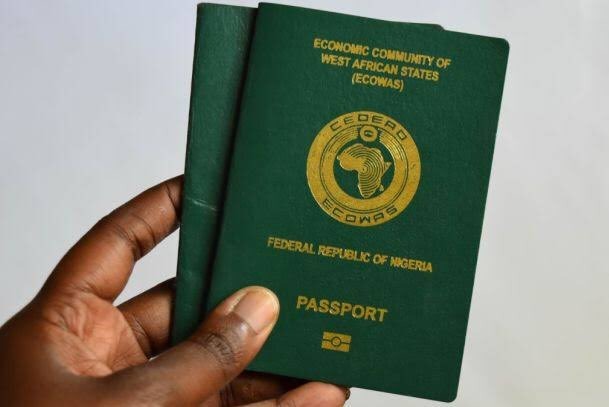BY AMOS OKPU
A country’s passport confers highest affirmation of citizenship on her nationals; Nigerians not exempted. So, possessing a Nigerian passport is a huge privilege for the citizens, and whatever reason that impedes obtainment of the national passport violates that right. Notwithstanding that there have been some challenges regarding the processing of the Nigerian passport; it is gratifying to state, however, that the narratives are fast changing positively.
Frankly speaking, the Nigeria Immigration Service (NIS), whose mandate it is to make passports available to Nigerians, acknowledges the pains and empathises with citizens – home and in the diaspora for the unintentional stress they encountered while processing their passports in recent times. Each time Nigerians express their anger and frustration on the government over the inability of the passport offices to process their passports as quickly as required, we at NIS are, indeed, saddened – truthfully.
While the challenges with passport processing subsist, one fact that cannot be denied, however, is that the current minister of interior, Rauf Aregbesola, has been unrelenting in seeking ways to fix the problems. The solutions may seem to be slow though; progress is being made. For clarity, I would like to restate that the challenges with passport administration aggregated over a period of time; so, it is not unlikely that people might not instantly appreciate the efforts of the present administration regarding what has been done, and what government is doing to reform passport administration.
Advertisement
The minister even recently at the rollout of the new enhanced e-Passport in Ibadan, Oyo state, reiterated this commitment when he said inter alia: ‘‘We shall continue to pursue the reform in passport administration until we have a smooth-running system that seamlessly put passports in the hands of Nigerians who want it”.
So, at this juncture, it is appropriate to put the issues in proper context and understand how the government through formulation and implementation of strategic reforms by the NIS in conjunction with the ministry of interior is bringing that commitment to life. Take the passport booklet as a case study. Contrary to the impression created by some media reports about passport booklets, the correct position is that NIS has redoubled efforts to meet the growing demand for passports by Nigerians at home and those in the diaspora, which has surged year-on-year.
The service, for instance, issued 2.7 million passports between 2019 till date, while in 2021 alone, it deployed 1,250,000) passport booklets all over the country and overseas – the largest deployment ever done in the history of the country, to bridge shortage in supply. Despite the yearly increase in demand for passports coupled with scarcity of foreign exchange, which also exerts a lot of pressure on the processing structure and resources, NIS and its technical partner, Iris Smart Technologies Limited, have been responding proactively to meet the growing demand for passports. To increase efficiency and integrity of the Nigerian passport, application, payment and production processes have also been upscaled to online format with the launch of the new enhanced e-Passport.
Advertisement
The new digitised passport, which comes with polycarbonate data page, and additional 25 security features, requires standardised processing procedures including diligent verification of the documents supplied and addresses stated by eligible applicants. The beauty of this is to ensure the elimination of instances of identity theft while the online application process addresses the need to considerably reduce all forms of human interference and corruption by touts and unscrupulous personnel.
The issue of backlog is also being addressed innovatively with the setting of new standardised timelines of six weeks for fresh passport processing and three weeks for reissue applications respectively. The period is to allow for internal screening and verification of source documents to ensure that passports are issued to truly verified applicants. To tackle the issue of identity theft and impersonation by criminals, it should interest Nigerians and the traveling public alike that NIS has successfully automated and integrated its ICT facilities with the INTERPOL system, thereby ensuring effective monitoring of stolen and lost travel documents (SLTD), a first in Africa. At the moment, over 165,000 records of reported stolen and lost travel documents have been successfully uploaded into the INTERPOL data base for enhanced monitoring by member states of the global body.
As part of efforts to standardise all our travel documents, the service is set to replace the current paper type emergency travel certificate (ETC) with the ICAO-compliant Nigerian temporary passport. The temporary passport is issued to Nigerians who for a reason or two do not possess valid passports and have urgent need to come home into the country. It comes as enhanced passport with improved security features. It is issued in our missions for a one-leg trip.
The service remains steadfast in its desire to emplace a passport administration and issuance structure that would respond sufficiently to all requests. This perhaps, explains why it finds some recent media reports about passport situation in some missions abroad grossly inadequate. For instance, a claim that about 1.5 million Nigerians could not access passport services in Italy certainly leaves much to be desired for a number of reasons. We do not doubt the fact that there are some of our compatriots in Italy who need passport services but the statistics of 1.5 million stated in the report simply begs the veracity of the claims of the authors. Available records in the mission have it that there are 209,000 Nigerians in Italy with 180,000 of them duly documented while about 290,00 are not. From this, we think that it is important for people who want to make claims to get closer to facts in order to pursue whatever agenda they have.
Advertisement
AOn visa administration operations, the service has also upscaled its curtailment strategy on irregular migration with the commencement of the issuance of full biometric visa at all entry points into the country as against the previous paper stamped visa with no security and personalization features. The beauty of the biometric visa regime is the robustness of holder’s data that are accessible to the NIS for informed decision-making purposes. It is important to state that visa administration regime is quite strategic in the three critical migrants control layers. The layers include; control before entry, control at entry and control after entry. Each of the layers is of significance in migration management and national security.
The need to deepen and modernise visa instrument led to the unveiling of the Nigeria visa policy (NVP) 2020 in compliance with the presidential executive order 1 (EO1) on ease of doing business. A critical development of the policy was the expansion of visa categories from six to 79, as another layer of the reform initiatives. This has not only expanded visa options for prospective applicants but also provided a robust roadmap on modern visa administration to the service with a view to making Nigeria one of the top investment destinations considerations for foreign investors.
In the area of border security and enhanced migration management, the NIS is deploying the advanced passenger information system (APIS) at all air entry points. APIS is another reform initiative by the service to not only improve passenger facilitation at major entry ports but to also ensure that our gates are not available to all manner of persons especially the inadmissible persons. The APIS empowers the federal government to access full details of all incoming travelers into the country even before arrival. This is aided by the massive migration information and data analysis (MIDAS) architecture of the NIS and its 24/7 platform with which the service is enabled to access, scrutinise and process relevant details of intending travellers into the country before arrival.
From the foregoing, suffice it be stated that the NIS is making some steady progress across its service windows. The speed of the journey may not be as some would expect but it is important to recognise that the service is better off today than where it was few years ago. It is indeed work-in-progress. As one of the identity management agencies in the country, the NIS is working in tandem with other data-generating agencies, and thus has begun mandatory passport-national identity number (NIN) linkage for all passport applicants towards building a unified national identity database for the country.
Advertisement
Beyond any iota of doubt, the issues with passport administration are way beyond what anyone could limit to the prism of undue politics game-playing. The destiny of Nigerians who need the passport as a requisite document to travel outside the country for whatever genuine purpose, is much more important at this point. The course of evolving a smooth passport administration and efficient migration management system for the country is certainly work-in-progress.
It needs be stressed that no responsible government will idle away while its citizens go through harrowing experiences in accessing public services and for us in the NIS, we remain committed to evolving a fully digitalized passport process to the admiration of the public. Our doors are open for constructive engagements with interest groups and individuals who have contributions to make.
The acting comptroller general, Isah Jere Idris, is a man with strong commitment to transparency in the conduct of official matters. He has demonstrated this in many instances including his recent unannounced visits to some of our service windows to assess the quality of our service delivery to members of the public.
Advertisement
Within the short time on board, he has had to invoke our consequence management mechanism to deal decisively with proven cases of offences against discipline, while commendations and awards have been presented to personnel who excelled in their duties particularly during the award night held recently by the service. He has continued to maintain that within the few period he has left in service, he will not be party to any attempt at using public fund to patronise certain interests. This perhaps explains why he has continued to turn down all manner of awards many of which are new ploys to procure financial favours.
He is committed to be named among those who contributed to the evolution of a service that is focused on deepening the ongoing passport reform efforts, emplacing structures especially ICT infrastructures for e-Border management and a well-motivated workforce.
It is gratifying to note that the federal government’s demonstrable commitment to the reforms of the immigration sector, especially passport processing, is already yielding positive results; it will certainly yield more in the long run, if sustained. With the various reforms being energetically spearheaded by the minister of interior in conjunction with the leadership of NIS, and with the cooperation of all relevant stakeholders, the end of other teething challenges associated with passport administration is not far. We should see beyond any perceived politics.
Advertisement
Okpu, assistant comptroller of immigration (ACI), is the public relations officer, Nigeria Immigration Service
Advertisement
Views expressed by contributors are strictly personal and not of TheCable.
Add a comment






